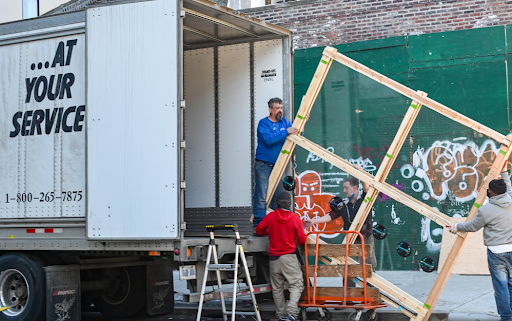Table of Contents
Movers Planning a long-distance move can be a daunting task. From packing up your life to settling into a new home, the journey can be filled with stress and uncertainty. One crucial decision that can significantly ease this transition is choosing the right long distance moving company.
With so many options available, how do you ensure you’re selecting the best one? Here are five essential tips to help you find reliable and efficient long distance movers.
1. Research and Gather Recommendations
The first step in finding the best long distance residential movers is conducting thorough research and gathering recommendations from trusted sources. Start by asking friends, family, and colleagues who have recently moved for their experiences and recommendations.
Personal referrals often provide insights into the reliability and professionalism of a moving company. Additionally, use online resources to research moving companies. Websites such as the Better Business Bureau (BBB) and the American Moving and Storage Association (AMSA) offer valuable information, including reviews and ratings of various movers.
2. Verify Licensing and Insurance
One of the most important factors when choosing a long distance moving company is ensuring they are properly licensed and insured. Long distance movers are required to have a valid USDOT (U.S. Department of Transportation) number, which you can verify on the Federal Motor Carrier Safety Administration (FMCSA) website.
This number indicates that the company is authorized to operate and complies with federal regulations. Additionally, verify that the company has adequate insurance coverage. This protects your belongings in case of damage or loss during the move.
3. Request Multiple In-Home Estimates
To get an accurate idea of the costs involved in your move, request in-home estimates from at least three different moving companies. In-home estimates allow movers to assess the volume and nature of the items you need to move and provide a more precise quote.
Beware of companies that only offer estimates over the phone or online without seeing your belongings in person. During the in-home estimate, ask for a detailed breakdown of the costs, including any potential additional fees for packing materials, long carry charges, or moving specialty items.
4. Check Experience and Specialization
Experience and specialization are crucial factors in choosing the best long distance movers. Moving long distances involves specific challenges, such as navigating interstate regulations and ensuring the safe transportation of your belongings over long distances.
Look for companies that have extensive experience with long distance move and a proven track record of successfully handling such relocations. Additionally, consider any special requirements you might have, such as moving valuable antiques, pianos, or other specialty items.
5. Review the Contract Thoroughly
Before finalizing your choice of a moving company, review the contract thoroughly to understand the terms and conditions. The contract should clearly outline all aspects of the move, including the services provided, pricing, payment terms, and the delivery schedule.
Pay close attention to any clauses related to delays, cancellations, or disputes. Ensure that the inventory list is accurate and includes all items to be moved. If there are any unclear terms or if you have questions, don’t hesitate to ask the moving company for clarification.
To get an accurate idea of the costs involved in your move, request in-home estimates from at least three different moving companies. In-home estimates allow movers to assess the volume and nature of the items you need to move and provide a more precise quote.
Beware of companies that only offer estimates over the phone or online without seeing your belongings in person. During the in-home estimate, ask for a detailed breakdown of the costs, including any potential additional fees for packing materials, long carry charges, or moving specialty items.





